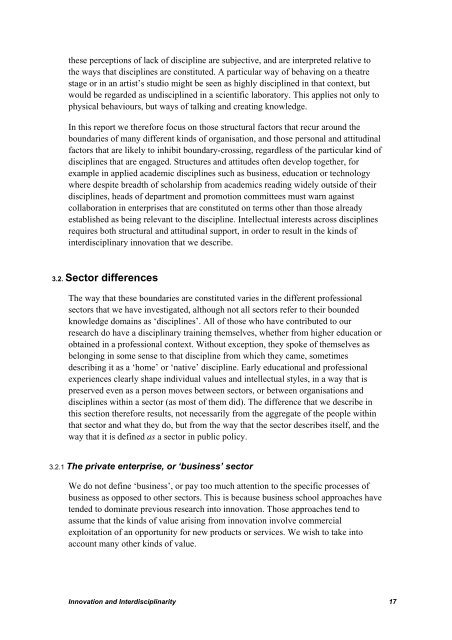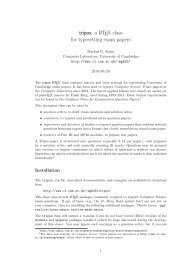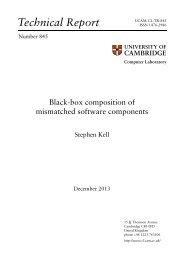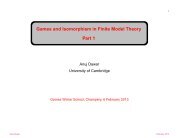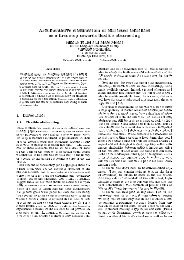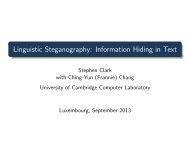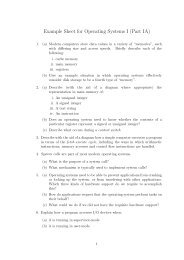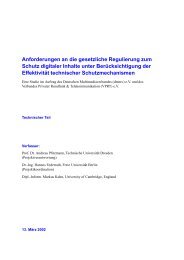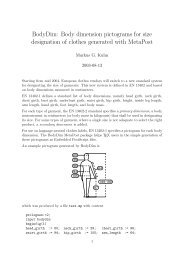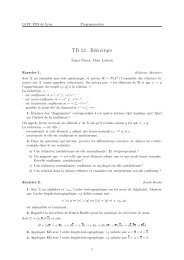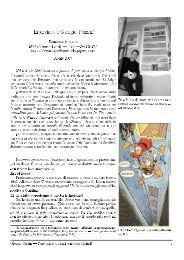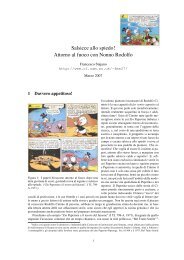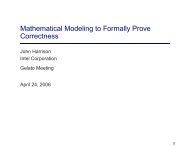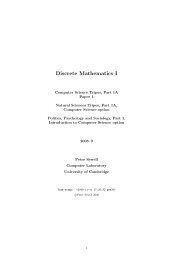Radical innovation: crossing knowledge boundaries with ...
Radical innovation: crossing knowledge boundaries with ...
Radical innovation: crossing knowledge boundaries with ...
Create successful ePaper yourself
Turn your PDF publications into a flip-book with our unique Google optimized e-Paper software.
these perceptions of lack of discipline are subjective, and are interpreted relative to<br />
the ways that disciplines are constituted. A particular way of behaving on a theatre<br />
stage or in an artist’s studio might be seen as highly disciplined in that context, but<br />
would be regarded as undisciplined in a scientific laboratory. This applies not only to<br />
physical behaviours, but ways of talking and creating <strong>knowledge</strong>.<br />
In this report we therefore focus on those structural factors that recur around the<br />
<strong>boundaries</strong> of many different kinds of organisation, and those personal and attitudinal<br />
factors that are likely to inhibit boundary-<strong>crossing</strong>, regardless of the particular kind of<br />
disciplines that are engaged. Structures and attitudes often develop together, for<br />
example in applied academic disciplines such as business, education or technology<br />
where despite breadth of scholarship from academics reading widely outside of their<br />
disciplines, heads of department and promotion committees must warn against<br />
collaboration in enterprises that are constituted on terms other than those already<br />
established as being relevant to the discipline. Intellectual interests across disciplines<br />
requires both structural and attitudinal support, in order to result in the kinds of<br />
interdisciplinary <strong>innovation</strong> that we describe.<br />
3.2. Sector differences<br />
The way that these <strong>boundaries</strong> are constituted varies in the different professional<br />
sectors that we have investigated, although not all sectors refer to their bounded<br />
<strong>knowledge</strong> domains as ‘disciplines’. All of those who have contributed to our<br />
research do have a disciplinary training themselves, whether from higher education or<br />
obtained in a professional context. Without exception, they spoke of themselves as<br />
belonging in some sense to that discipline from which they came, sometimes<br />
describing it as a ‘home’ or ‘native’ discipline. Early educational and professional<br />
experiences clearly shape individual values and intellectual styles, in a way that is<br />
preserved even as a person moves between sectors, or between organisations and<br />
disciplines <strong>with</strong>in a sector (as most of them did). The difference that we describe in<br />
this section therefore results, not necessarily from the aggregate of the people <strong>with</strong>in<br />
that sector and what they do, but from the way that the sector describes itself, and the<br />
way that it is defined as a sector in public policy.<br />
3.2.1 The private enterprise, or ‘business’ sector<br />
We do not define ‘business’, or pay too much attention to the specific processes of<br />
business as opposed to other sectors. This is because business school approaches have<br />
tended to dominate previous research into <strong>innovation</strong>. Those approaches tend to<br />
assume that the kinds of value arising from <strong>innovation</strong> involve commercial<br />
exploitation of an opportunity for new products or services. We wish to take into<br />
account many other kinds of value.<br />
Innovation and Interdisciplinarity 17


